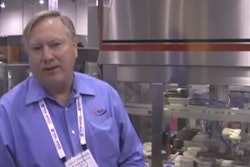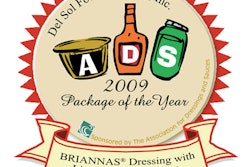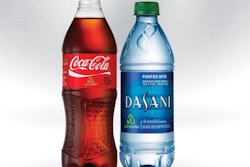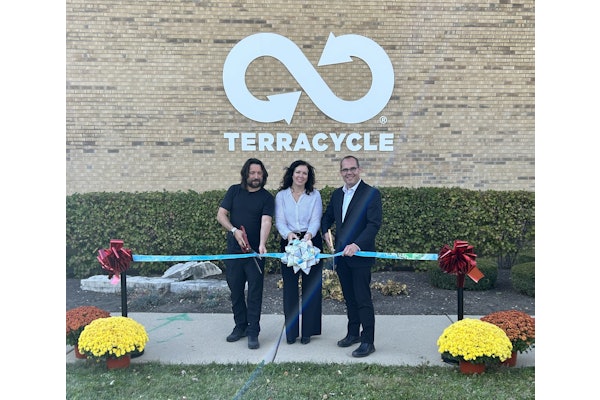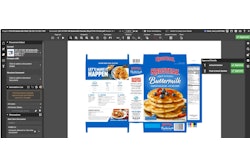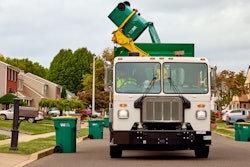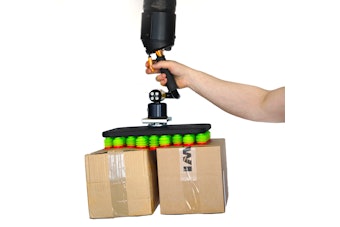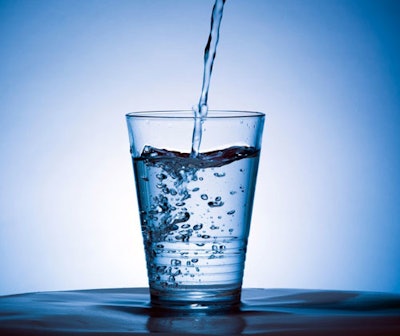
A strategy of "reducing first, then recycling" is the best environmental path to follow when it comes to drinking-water delivery systems, reports a new study from the Oregon Department of Environmental Quality (DEQ). The study, "Life Cycle Assessment of Drinking Water Delivery Systems: Bottled Water, Tap Water and Home/Office Delivery Water," concludes that drinking tap water in refillable bottles is the more environmentally friendly action when compared to other forms of obtaining and consuming drinking water, including buying water in bottles and recycling them.
DEQ says it commissioned the study to provide information that both consumers and producers can use to voluntarily reduce their environmental impacts.
"For consumers, the most important message is: Reduce first, then recycle," says David Allaway, DEQ solid waste senior policy analyst. "Drinking tap water and recycling single-use bottles are equally effective ways of keeping waste out of landfills and incinerators, but DEQ's study shows that most effects on the environment from bottled water occur from manufacturing and transportation, not disposal. Recycling single-use water bottles, at best, offers only moderate reductions in environmental impacts.
"If you have single-use water bottles, please recycle them. But it's better to avoid them in the first place. Just because a product can be recycled doesn't necessarily make it the best environmental choice."
This DEQ study compares 48 different scenarios and examines a range of environmental effects across the entire life cycle of single-use, 5-gal reusable, and tap-water delivery methods. The "life cycle" includes extracting raw materials from the earth (coal, oil, minerals, etc.); producing energy resources and packaging materials; water treatment, bottling and transportation; consumer transport and dishwasher use; and disposal, recycling, and composting.
Highlights for consumers
The study provides several conclusions for consumers:
• Recycling water bottles offers moderate environmental benefits, and consumers who choose to drink from single-serve bottles should continue to recycle. DEQ's study finds that purchasing and recycling a typical water bottle reduces energy consumption by 24% and greenhouse gas emissions by 16% over the entire life cycle, compared against purchasing and disposing of the same water bottle.
• In contrast, consuming the same quantity of water from the tap in an average reusable bottle, even if washed frequently in a highly inefficient dishwasher, reduces energy consumption by 85% and greenhouse gases by 79% (again, compared against purchasing bottled water and disposing of each bottle).
• Even the best-performing bottled water scenario, which uses and recycles a light-weighted bottle not even available in Oregon yet, has global warming effects 46-times greater than the best-performing tap water scenario evaluated in DEQ's study.
• For individuals drinking water from the tap, environmental impacts are typically small and are dominated by the energy used to heat water for washing reusable bottles or cups. Using energy-efficient appliances, washing less often, and only running the dishwasher when full are the most environmentally significant behaviors for these individuals.
• If bottled water must be purchased, DEQ recommends using the thinnest bottles and purchasing water that is bottled locally. Impacts of driving to the store can also be large, so avoiding extra shopping trips helps, as does recycling when the single-use bottles are emptied.
Highlights for producers
DEQ's study also contains information that producers can use to make their packaging less harmful to the environment, says Allaway. A key finding is that many of the environmental effects result from resin manufacturing, and making bottles thinner is one of the most important options for bottlers. Using recycled content and supporting increases in recycling helps too, but these benefits are generally smaller.
For bottled water shipped long distances, transportation impacts can dominate. Ideally, bottled water should not be shipped long distances.
Allway notes that the study also raises concerns about degradable plastics. Comparing a plant-based plastic (polylactic acid) to the traditional PET (polyethylene terephthalate) plastic, the study finds that each resin offers different environmental strengths and weaknesses. But once placed in landfills, degradable plastics have the potential of adding to emissions of methane, a potent greenhouse gas. Allways says that more research is needed to understand the fate of degradable plastics in the environment.
DEQ says it commissioned the study to provide information that both consumers and producers can use to voluntarily reduce their environmental impacts.
"For consumers, the most important message is: Reduce first, then recycle," says David Allaway, DEQ solid waste senior policy analyst. "Drinking tap water and recycling single-use bottles are equally effective ways of keeping waste out of landfills and incinerators, but DEQ's study shows that most effects on the environment from bottled water occur from manufacturing and transportation, not disposal. Recycling single-use water bottles, at best, offers only moderate reductions in environmental impacts.
"If you have single-use water bottles, please recycle them. But it's better to avoid them in the first place. Just because a product can be recycled doesn't necessarily make it the best environmental choice."
This DEQ study compares 48 different scenarios and examines a range of environmental effects across the entire life cycle of single-use, 5-gal reusable, and tap-water delivery methods. The "life cycle" includes extracting raw materials from the earth (coal, oil, minerals, etc.); producing energy resources and packaging materials; water treatment, bottling and transportation; consumer transport and dishwasher use; and disposal, recycling, and composting.
Highlights for consumers
The study provides several conclusions for consumers:
• Recycling water bottles offers moderate environmental benefits, and consumers who choose to drink from single-serve bottles should continue to recycle. DEQ's study finds that purchasing and recycling a typical water bottle reduces energy consumption by 24% and greenhouse gas emissions by 16% over the entire life cycle, compared against purchasing and disposing of the same water bottle.
• In contrast, consuming the same quantity of water from the tap in an average reusable bottle, even if washed frequently in a highly inefficient dishwasher, reduces energy consumption by 85% and greenhouse gases by 79% (again, compared against purchasing bottled water and disposing of each bottle).
• Even the best-performing bottled water scenario, which uses and recycles a light-weighted bottle not even available in Oregon yet, has global warming effects 46-times greater than the best-performing tap water scenario evaluated in DEQ's study.
• For individuals drinking water from the tap, environmental impacts are typically small and are dominated by the energy used to heat water for washing reusable bottles or cups. Using energy-efficient appliances, washing less often, and only running the dishwasher when full are the most environmentally significant behaviors for these individuals.
• If bottled water must be purchased, DEQ recommends using the thinnest bottles and purchasing water that is bottled locally. Impacts of driving to the store can also be large, so avoiding extra shopping trips helps, as does recycling when the single-use bottles are emptied.
Highlights for producers
DEQ's study also contains information that producers can use to make their packaging less harmful to the environment, says Allaway. A key finding is that many of the environmental effects result from resin manufacturing, and making bottles thinner is one of the most important options for bottlers. Using recycled content and supporting increases in recycling helps too, but these benefits are generally smaller.
For bottled water shipped long distances, transportation impacts can dominate. Ideally, bottled water should not be shipped long distances.
Allway notes that the study also raises concerns about degradable plastics. Comparing a plant-based plastic (polylactic acid) to the traditional PET (polyethylene terephthalate) plastic, the study finds that each resin offers different environmental strengths and weaknesses. But once placed in landfills, degradable plastics have the potential of adding to emissions of methane, a potent greenhouse gas. Allways says that more research is needed to understand the fate of degradable plastics in the environment.



